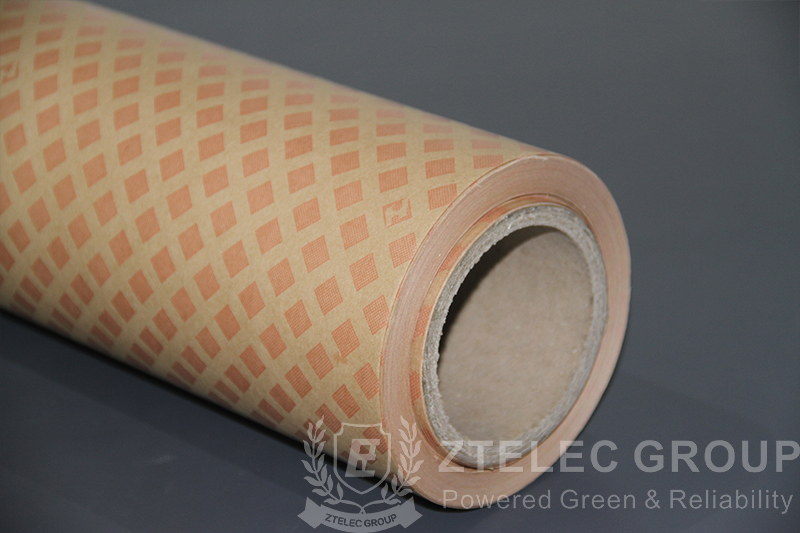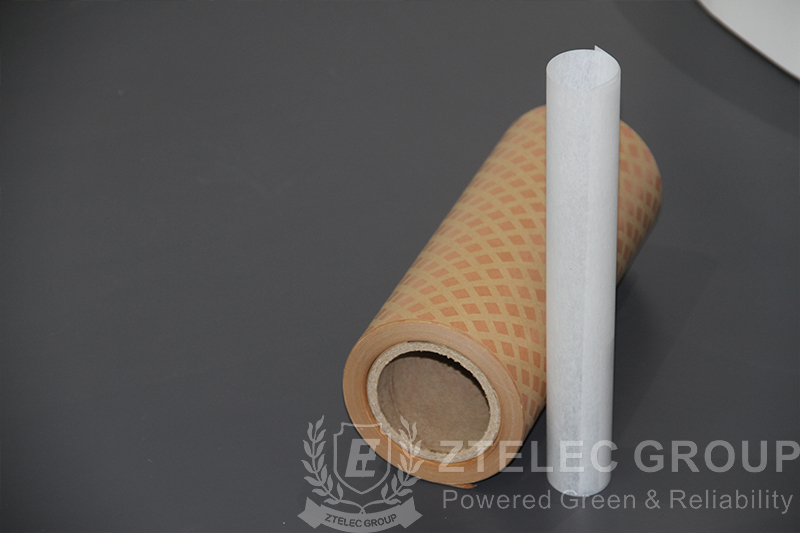As the world’s pursuit of sustainable development and clean energy increases, the development of the new energy field has ushered in unprecedented opportunities, and the importance of insulation materials as a key element to ensure the safe operation of electrical equipment is self-evident. DDP, as a high-performance insulating medium, has shown great application potential and value in the field of new energy with its excellent insulation performance, heat resistance, moisture resistance and mechanical strength.

Mechanical and electrical properties: DDP has superior mechanical properties and good dielectric properties after thermal curing. It can make the coil have good resistance to axial short-circuit stress and improve the coil’s resistance to heat and force.
Heat resistance grade: DDP’s temperature resistance grade can reach F grade, and it can maintain stable performance at higher temperatures.
Adhesion strength: The epoxy resin coating of DDP will produce adhesion during the drying process. And it will begin to solidify as the temperature rises to form a strong bond, which prevents the displacement of the winding layers, and ensures the long-term mechanical and electrical properties of the insulation structure.

DDP plays a vital role in the power battery that is the heart of new energy vehicles. The power battery of new energy vehicles usually consists of multiple battery cells connected in series or in parallel to form a battery module. And these battery cells or the battery module and the external environment need effective insulation isolation to prevent current leakage and short circuit, and ensure the safety and stability of the battery system. DDP is widely used in the manufacture of key components such as battery insulation gaskets and battery shell insulation layers due to its excellent insulation performance and heat resistance.
In the field of photovoltaic power generation, DDP is mainly used for insulation protection of equipment such as inverters and combiner boxes. Since photovoltaic power stations are mostly built outdoors in harsh environments, DDP needs to have excellent weather resistance and be able to resist harsh environments such as ultraviolet rays, high temperature and low temperature. In addition, the DC voltage of photovoltaic power stations is relatively high, and DDP needs to have good voltage resistance.
In the energy storage system, DDP is used for insulation isolation of battery packs and converters. The energy storage system may generate high temperatures during operation, and the battery pack is at risk of short circuit and fire, so DDP needs to have good flame retardancy and high temperature resistance. At the same time, the voltage level of the energy storage system is relatively high, and the voltage resistance level of DDP needs to match it.
In charging piles, DDP is used for internal insulation protection. Electric arcs may be generated when charging piles are working, and the outdoor environment is complex. DDP needs to have good arc resistance and weather resistance. In addition, the voltage level of charging piles is high, and the voltage resistance performance of DDP needs to meet relevant standards.
The specific application of DDP in the field of new energy covers battery module, photovoltaic power generation equipment, energy storage systems and charging piles. With the rapid development of the new energy industry, the application prospects of DDP will be broader, providing strong support for the stable operation and efficient development of new energy equipment.
If you need our products please write down any questions, we will reply as soon as possible.
There are three ISO certificates for quality certification. The certificates will be shown later. ISO
After receiving the advance payment, the production cycle is 15-25 days. And the transportation cycle should be calcul……
We supply with installation guide and user manual for each transformer. If you do not understand them. We will offer v……